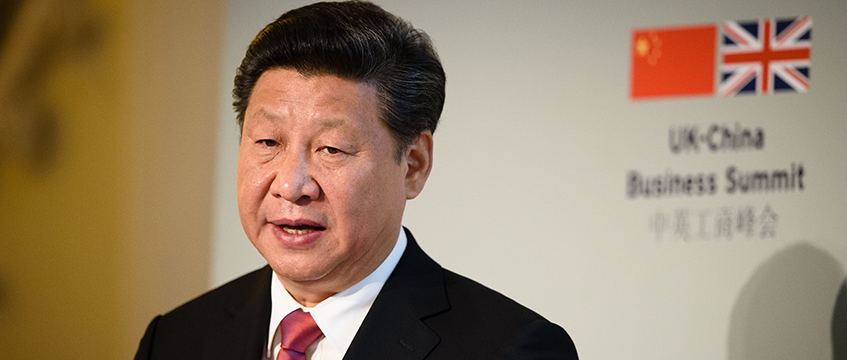China is tightening controls over outbound investments, a move that has immediate implications for property.
Following Dalian Wanda’s spectacular exit from the £470m purchase of Nine Elms Square, SW8, from St Modwen this week, can we expect further fallout from the regulations?
Wanda has transferred its interest in the scheme to Hong Kong-listed R&F Properties and CC Land after coming under scrutiny from the Chinese government, which announced new restrictions last week for property investments not in line with their standards or economic objectives.
One country, two systems
Acquisitions by mainland Chinese investors have already dwindled since Beijing first introduced restrictions at the end of 2016. Ministry of Commerce data shows that overseas direct investment in property fell by 82% year-on-year in the first half of 2017.
The majority of Chinese investment in UK property over the past 12 to 18 months has been from companies based in Hong Kong, which has its own laws and will not be subject to the new rules. Therefore, the immediate impact on UK property investment volumes is unlikely to be significant.
Chris Harvey, head of UK real estate at Mayer Brown, who specialises in advising Asian clients, says: “From our perspective, it’s business as usual, but I suppose what it is doing is formalising and cementing what we’ve been seeing anyway from the past six to 12 months on the mainland side.
“It’s becoming more official and restrictive and articulated in terms of discouraging or limiting mainland Chinese outbound investment.”
He added: “I don’t think we’re going to see much if any investment at the moment from the Chinese state-owned enterprises. I think it will continue to come from more private sources and we will see whether those private sources are still able to filter their money through some Hong Kong company, or whether they’re able to do it through some other platform.
“There could be some risk as well if mainland Chinese buyers have already exchanged on a purchase of which completion hasn’t yet happened and I guess there could be a risk of default if that money hasn’t already left the country.”
Stephen Down, head of the central London investment team at Savills, said: “The further restrictions will affect more of the mainland Chinese property developers and institutions than, say, investors from Hong Kong – the latter who have been particularly active in the central London market over the past 12 months though they have been mainly focused on standing investments rather than speculative development opportunities.
“As a consequence we don’t expect there to be a substantial reduction in appetite for the time being.
“However that being said a lack of buyable stock and some noticeable heightened concerns about the direction of the UK economy has led to some potential investors who were planning to come to London now going elsewhere.”
The New Rules
The latest announcement offers new guidance about the government’s favoured investments by putting them into to three categories: encouraged, restricted and prohibited. Property is “restricted”, which means investment will be subject to additional checks and audits by the Chinese government.
The National Development and Reform Commission has indicated that it is drafting new outbound investment legislation and approval and filing rules, which will provide more specific detail on the rules.
What’s new?
■ Overseas investments are divided into three categories: encouraged; restricted and prohibited.
■ Property is categorised as “restricted”, which means investments will be more tightly controlled and in some cases will require government approvals rather than filings.
■ Additional checks, reviews and audits will be put in place by government, which will gather more information on risks and political climate in different countries.
■ Encouraged investments include infrastructure investment to aid the development of the Belt and Road – the programme launched by the Chinese president in 2013 to invest in projects and businesses along the Silk Road route and old maritime routes (the Belt) from the Chinese coast across Singapore and to the Mediterranean.
While the desire to restrict outbound investments to those that benefit the domestic economy is not new, the rules offer more detail about what the government interprets as “relevant” investments, such as the Belt and Road initiative, which is designed to benefit the Chinese economy more widely rather than just being speculative opportunities.
James Crookes, global head of real estate at Pinsent Masons, said: “To the extent that much of Chinese investment into real estate is part of larger infrastructure-related projects, one has to assume that is less likely to be seen to be contravening the new regulations, especially where there are opportunities for Chinese-based contractors and operators who will repatriate profits.
“What’s more, where investment into real estate that is linked to transport, energy or technology, this is likely to be encouraged for the same reason, as it will be consistent with the Belt and Road initiative.”
Separately, it is also expected that state-owned enterprises will also begin to merge in order to improve their efficiency. Poly Group, a state-owned enterprise conglomerate with significant real estate interests, was merged with Sinolight Corporation and China National Arts and Crafts Group this week.
There are now 99 state-owned enterprises, down from 196 in 2003, and the government has said this number could be reduced to 90.
What do sellers need to consider?
It is likely that Chinese names will continue to appear on lists of bidders but sellers need to consider them with caution.
Stephen Barter, chairman of KPMG’s real estate advisory service, said: “I think it just means that if you’re on the sell side, you need to select carefully and do thorough due diligence and check things like proof of funds.
“There is an enormous diversity of investors coming out of China – from government investment funds to state-owned enterprises to private investors – and they’ve all got different characteristics and different capabilities of funding. So you’ve got to be very sure whom you’re dealing with and that they are capable of getting whatever government support they need to be able to make that investment.”
Linklaters advises businesses involved in Chinese outbound investment transactions to assess the regulatory risks by considering where their planned transactions fit in the context of the three specific categories outlined.
If an investment does not fit in any of the specifically listed sectors, it may still be necessary to demonstrate its positive effect on China’s competitiveness, China’s participation in global supply chains and value chains and the globalisation of China’s economy, in order to ensure a smooth Chinese regulatory process, the law firm says.
So is this the end of mainland Chinese investment? Not exactly. There are several ways in which Chinese capital can still be invested in property and somewhat circumvented (see below), including investing through Hong Kong if they already have established entities, or using offshore financial institutions.
A major Chinese investor with a satellite European office making early moves into the region said: “For us, capital controls don’t have much of an impact day-to-day. Operationally a lot of our funds come through Hong Kong and as we are not doing huge, multi-billion corporate deals then we are not coming up against any problems.”
How could private Chinese investors react to the rules?
CBRE Research has outlined four ways we can expect investors to react to the regulations:
■ using offshore financial institutions – large investors that already have money in circulation via the balance sheets of insurance companies and other investment management platforms they have acquired are likely to use these offshore platforms to engage in property acquisition;
■ investing through Hong Kong – investors are likely to use their Hong Kong-based entities to purchase assets; the city itself also remains popular among Chinese investors seeking land and assets;
■ exporting their brand – more investors are expected to export their brands and operational expertise to serve as property operators/managers; and
■ other ways, including investing in Belt and Road countries; taking positions as limited partners; purchasing smaller equity stakes of below US$50m; and participating in joint ventures.











